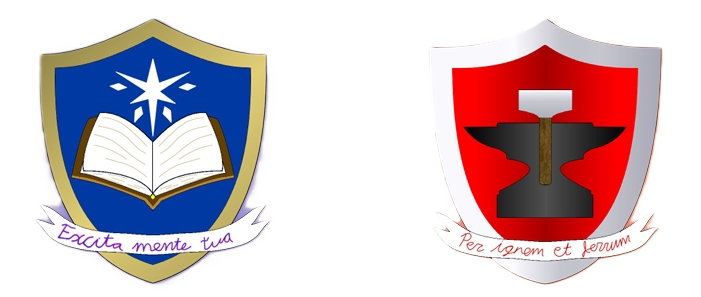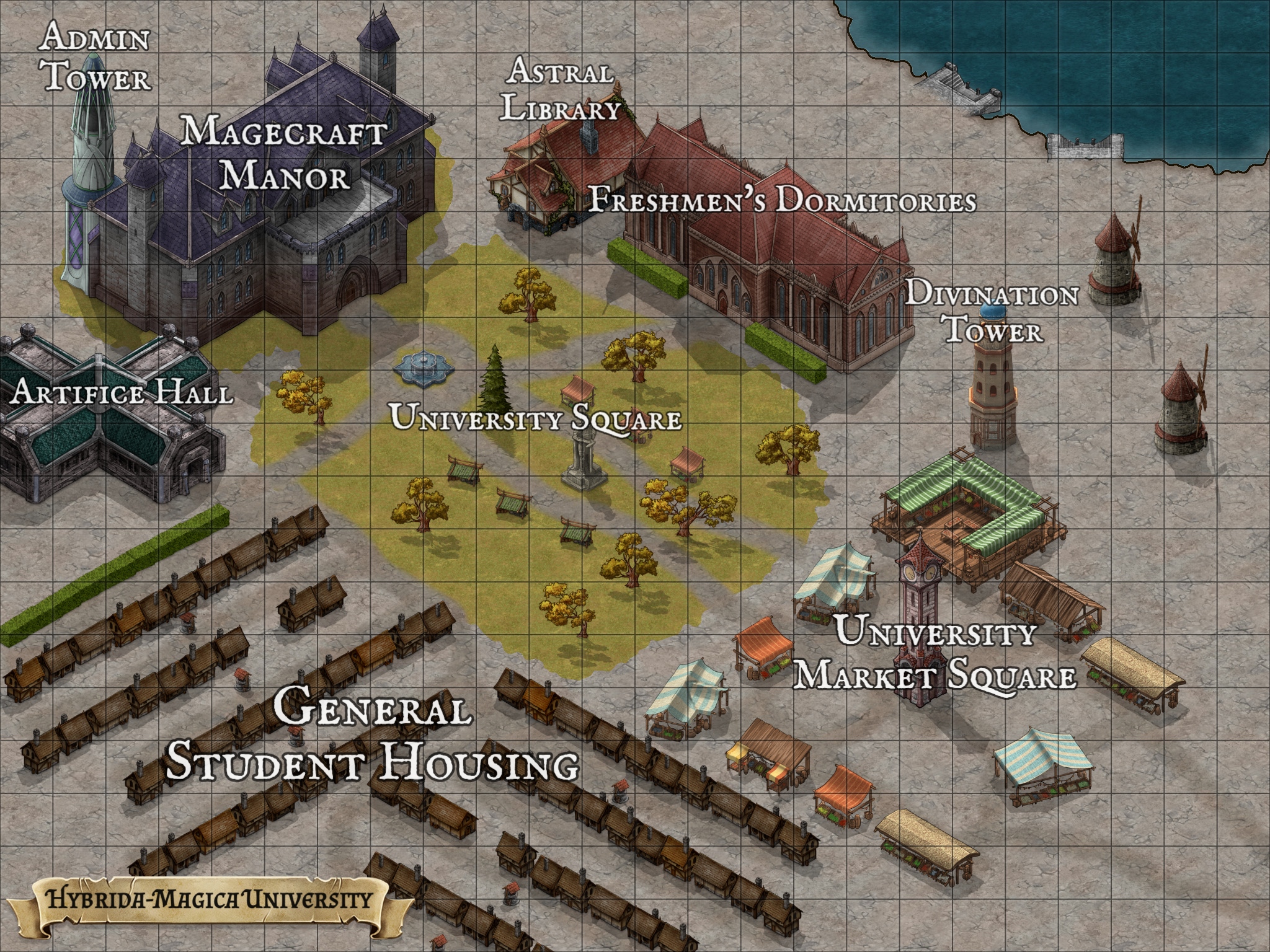Hybrida Magica University
Structure
Amongst HMU adminstration and leadership, the school's organization structure goes from top to bottom:
- Headmaster
- University Officers
- House Presidents (Head Tome and Head Hammer)
- House Representatives
- Other Student Council Members
- Students
Culture
School culture is rather typical of a magic university. People are encouraged to seek their ambitions to become the mage or artificer that they may strive to be, all while becoming a responsible person in general.
However, internally, the school's two main houses (determined based on one's study), the House of the Tome and the House of the Hammer, have been known to have a bit of a rivalry since their inception. While both student wizards and artificers are proud of their intelligence, one focuses more on understanding, deciphering, and mastering arcane magic while the other focuses on creativity, innovation, and hands-on activities that combine engineering and magic. While most students at most take jabs at each other on the surface, those involved in student council/bureaucracy tend to take the rivalry more seriously. Bickering on which classrooms need more funding, pushes for more classes, materials, etc aren't uncommon amongst those "in the group."
Public Agenda
Hybrida Magica's main goal is simple: Push for more mages and artificers into society. Learning magic is good and learning engineering is good, so let's combine them to contribute the most to society.
Assets
The university has many assets to help aid its students in becoming the mage or artificer they strive to. They have many classrooms for specific lessons and classes. There's an entire building dedicated to teaching arcana and another for artifice. A massive plot of land is used purely to house students, the houses being cozy and comfortable wooden houses; freshman students are granted access to dormitories for their first year in the school. And of course, the school has everything any striving wizard or artificer will need in the realms of materials. Alchemy labs, spellcraft zones, and more are available for student use.
Majors, Programs, and Classes
The university provides many majors for their students to achieve. There are two main categories, that being whether you focus on Arcane Magic or Artifice Magic. Most majors require a minimum of 4 years, 8 semesters of study and education. There are also a few interdisciplinary programs that the Arcane Majors- Classical/General Wizardry: The jack-of-all-trades major. Student mages learn a decent amount of information about each of the major schools of magic. This major is popular amongst young aspiring mages who don't feel like putting all their mana in one style of magic.
- Evocation and Elemental Theory: Focuses on evocation magic and their often-related elemental connections. Similarly popular for mages who may wish to become an adventurer, slinging fireballs and lightning bolts at monsters.
- Enchantment Applications: Focuses on using magic to persuade and suggest. This school of magic has already received some backlash due to its potential misuse, however the major still remains. Apprentices and students of this major do not have typical wizard duels of spell slinging, but rather are more like magically-enhanced debate teams. Professors of this major are required to focus on the often-overseen ethics of using enchantment magic.
- Necromantic and Dark Arts Studies: Another controversial field of study, students of this major study and sometimes even practice magic relating to necromancy and similar dark arts. Great care is done by the faculty to make sure that students understand the dangers and risk of this school of magic.
- Trasmutation and Alchemical Theory: Students of this major train in the alteration of matter. From transfiguration to phyiscal enhancement, students learn to essentially analyze the very things that make up an object. These classes often collaborate with the Artificers' Alchemy classes.
- Golemancy and Construct Design: Students of this major study the art of creating automatons, constructs, and even warforged. Student artificers of this major have the famous final project of the Great Warforged Project, where teams of young artificers are required to construct a fully-functional and sentient warforged.
- Alchemical Engineering: Students work with potion brewing as well as learning how to handle and apply volatile compounds. Lots of care and knowledge is required in this field of study, as the accidental creation of poisons and other hazardous materials can lead to both damage of property and self.
- Magitech and Rune Mechanics: Utilizing the power of runes and magic programing, students of this magic learn the art of runecraft and its many applications. This major works in conjunction with the Golemancy and Construct Design students during the Great Warforged Projects.
- Arcane Infrastructure and Systems: Students of this study learn to infuse and incorporate artifice magic into everyday living. From automatic doors to proximity lights, these student artificers learn of the process to incorporate just a little more magic into the lives of everyone.
- Combat Engineering: Training specialists to provide logistical support, enchanted gear, and rapid field deployment systems. This major is particularly popular for those who want to take up adventuring/mercenary work, as it oftentimes comes with classes that involve adventuring-type physiccal activities.
- Arcane History and Literature: A book-centric program that focuses on old magical literature and history. From the oldest mages of both history and legend to theoretical possibilities of what magic could've been, students may enjoy this rather low-paced minor program. This program lasts for no more than 2 years.
- Bard College: For those who wish to channel and practice both magic and self-expression in the form of musical and theatrics, this is where many bards come from. From learning to play a variety of instruments and channeling one's magic through them to learning how to sweet-talk with a pinch of enchantment, all the eccentrics enter this 2-year program.
- Adventuring 101: A supplemental program for students who genuinely do want to go out in the field as an adventuring-type, be they an explorer or monster hunter. While not required, this is still the most popular program to minor in, as seemingly everybody wants to make their mark as some glorious adventurer. This program only lasts a year.





Comments